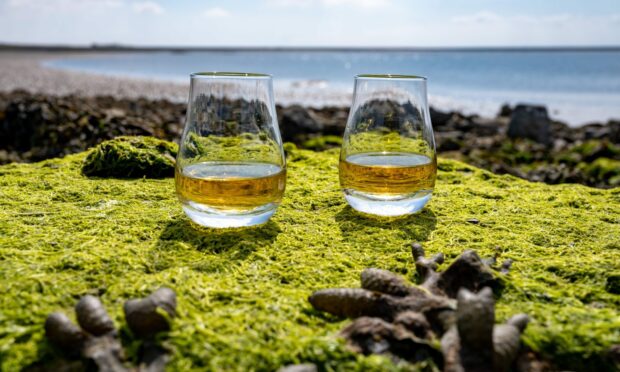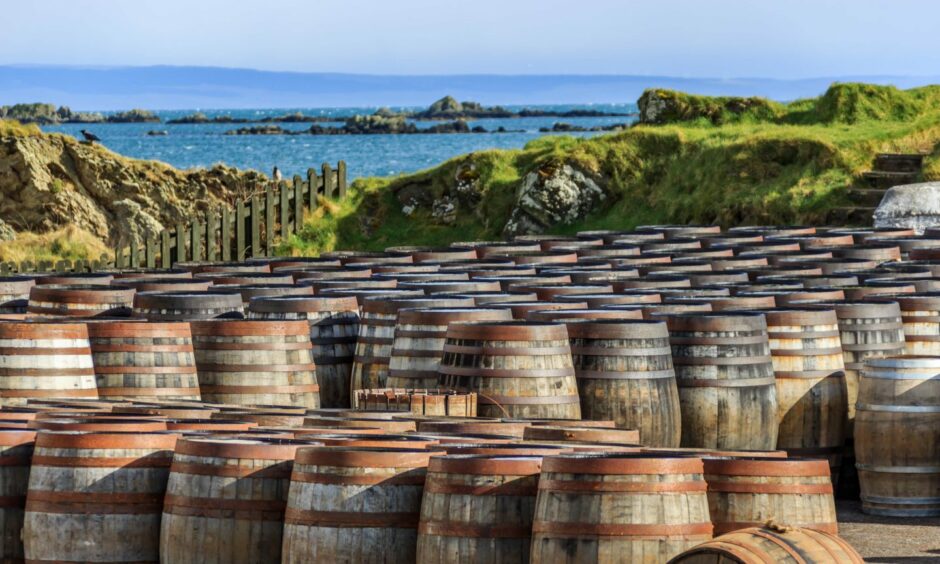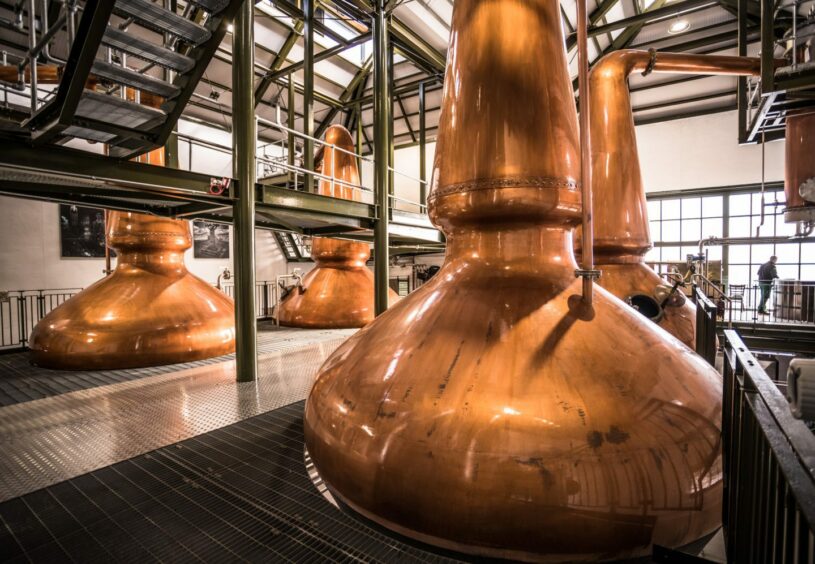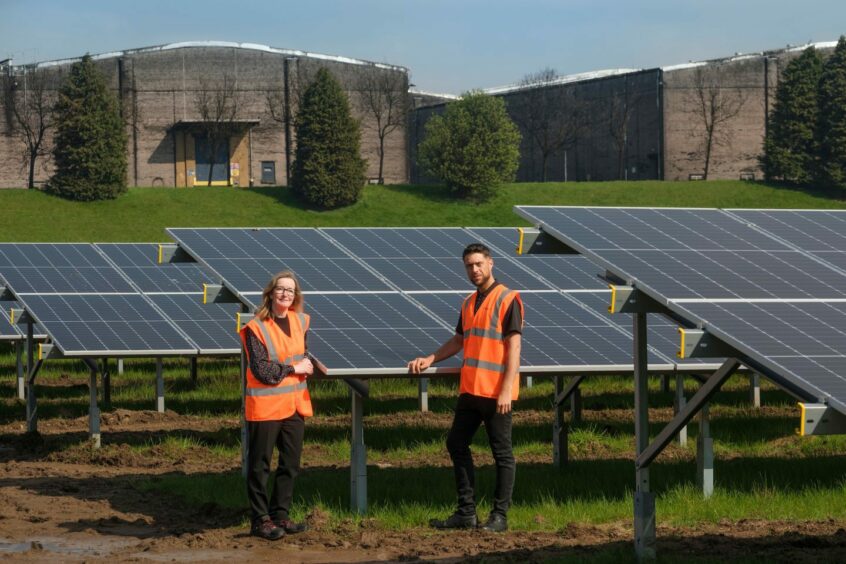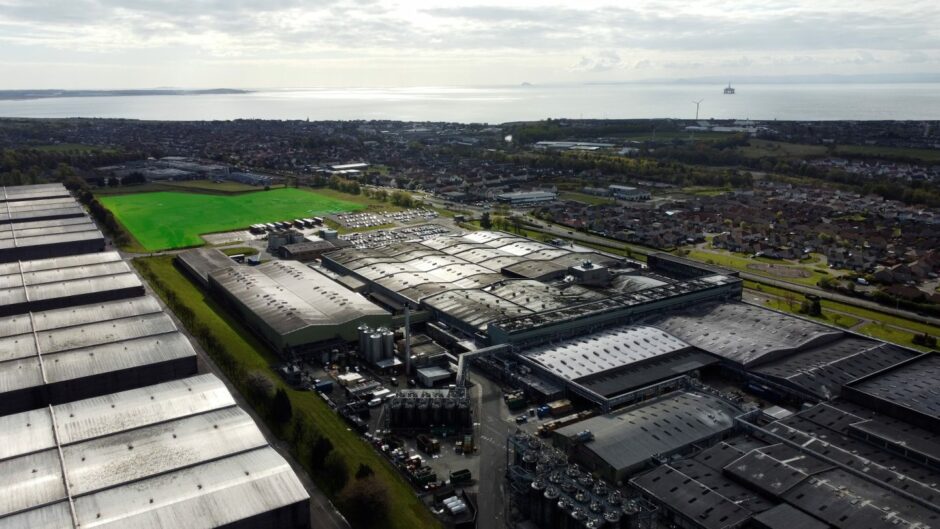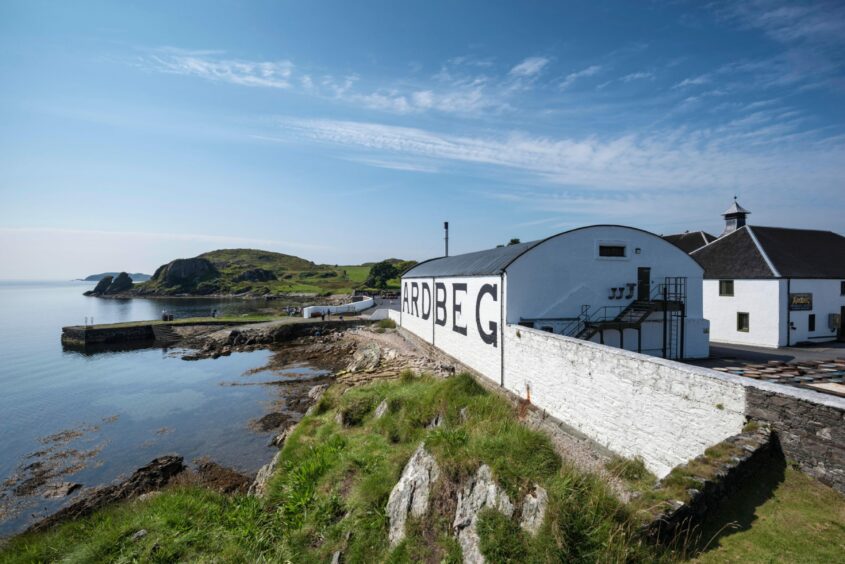Scotland’s whisky industry continues to be a massive contributor to the health of the economy north of the border.
But this does not mean producers of our national drink have taken their eye off the ball when it comes to the importance of achieving net-zero.
Ongoing initiatives by whisky-makers include everything from biofuel-powered lorries to solar farms, and to even using oysters in the Dornoch Firth to clean waste water.
Whisky exports smash £6m barrier
Global exports of Scotland’s national drink grew to more than £6 billion for the first time last year, according to figures from by the Scotch Whisky Association. The value of exports was up 37% year-on-year, to £6.2bn. The number of standard-sized 70cl bottles exported also jumped, by 21% to the equivalent of 1.67 billion.
More than 11,000 people are directly employed by the industry north of the border, and in excess of 42,000 jobs across the UK are supported.
Academics say that for any business to have longevity in today’s world, it needs the skills to solve, create and innovate under the parameters of a sustainable future.
The Scottish whisky industry takes achieving net-zero seriously. In 2009 it became the first industry north of the border to launch a sector-wide environmental strategy. And, in 2021 it introduced a new sustainability strategy, committing it to net-zero emissions from its operations by 2040 and reducing dramatically the environmental impact of whisky in other areas.
The revised strategy builds on progress made over the previous decade which saw distillers working to reduce their greenhouse-gas emissions by more than one-third.
It covers four main themes – tackling climate change, using water responsibly, moving to a circular economy and caring for the land.
The strategy also commits the industry to work collaboratively with supply-chain partners and governments towards a collective goal of a sustainable dram, from grain to glass.
Other commitments include:
- Reaching net-zero emissions by 2040, five years ahead of the Scottish Government’s 2045 net-zero target and 10 ahead of the UK Government’s goal
- By 2025 all new product packaging will be reusable, recyclable or compostable
- Playing an active role in the wider conservation and restoration of Scotland’s peatland to deliver environmental benefits for the common good by 2035
- Continuing to use water efficiently so that all producers are within a “responsible” range by 2025
A recent report highlighted a variety of reasons why sustainability is so important in business. The points made by Falmouth University include:
- Sustainability is timely and vital. The human footprint of climate change is undeniable. As individuals, we have cultivated a consumer society where low-cost products sell, regardless of the damage to our planet. In businesses, profitability has always been king – we have created economic systems where the aim of fair distribution has not yet been materialised. Oxfam says the world’s richest 1% have more than twice as much wealth as 6.9 billion people. Sustainability is timely and vital for business creation and development
- Changes in customer behaviour. This has evolved with the rise of ethical consumerism, and data shows large consumer markets are gravitating towards a more sustainable lifestyle. For example, Deloitte’s sustainability consumer report showed 85% of consumers in the UK adopted a more sustainable lifestyle in 2021, during the pandemic, and one-third looked to buy from businesses with strong sustainable credentials
- Looking green is not enough. There’s a big difference between traditional and sustainable business models. Although they each share the ultimate goal of a firm’s survival, traditional business models primarily focus on profit. On the other hand, a sustainable company should focus on making a positive impact on some of the most urgent social and environmental problems. To achieve this, enterprises have to embed sustainability into their business models and balance the cost/benefits of their product or service
- Growing consumer groups like Gen Z – those born in the late 1990s and early 2000s – value trust and transparency, and are savvy at spotting greenwashing tactics used by many brands to wrongfully appear sustainable. Being a sustainable business takes time, money and resources. Brands that falsely claim to be green through their PR and marketing campaigns are at risk of losing consumer trust. For a firm to have longevity, it needs the skills to solve, create and innovate under the parameters of a sustainable future.
Scotland’s increasingly sustainable drams helping race to net-zero
Whisky producers including Diageo and Glenmorangie are using a variety of initiatives in the race to net-zero.
Earlier this year Diageo switched on one of the largest private solar panel arrays in Scotland to provide renewable energy for packaging of its global brands. The solar farm at Diageo Leven in Fife consists of 8,000 panels on an area the size of eight football pitches next to the packaging plant. The array produces enough electricity to power 2,500 homes for a year – and will reduce CO2 emissions by about 830 tons a year.
Diageo’s 2030 decarbonisation goal
Diageo Leven is the company’s largest packaging plant – producing more than 40 million cases of premium spirits every year, including leading drink brands such as Johnnie Walker, Smirnoff, Gordon’s and Captain Morgan.
The solar investment is part of Diageo’s Society 2030 commitment to decarbonise its direct operations by the end of the decade.
Diageo Leven operations director Stuart Galbraith said: “Our people are passionate about protecting the environment and building a sustainable future. It is fantastic to know that, as we work to make some of the world’s greatest quality products, we are doing it with renewable energy produced by Scottish daylight.”
Diageo recently launched a new trial in partnership with Malcolm Logistics to run biofuel-powered lorries. The move sees 11 vehicles powered by fuel made up of vegetable oil and hydrogen operating into and out of Diageo Leven. The trial is looking at the performance and reliability of the lorries and will run until the end of October.
Malcolm Logistics runs up to 100 lorry loads into and out of Diageo Leven every day, meaning the potential for significant carbon savings if the trial is successful.
Oysters with your whisky?
Meanwhile, Glenmorangie is involved in projects including using oysters in the Dornoch Firth to clean waste water from its whisky distillery in Tain, Ross-shire.
The firm has been in the whisky-making business for more than 200 years. It is committed to preserving the natural environment on which its Glenmorangie and Ardbeg distilleries rely. The company is protecting its water from source through to the distillation process.
Islay distillery using recycled H2O
At its Ardbeg Distillery, on Islay, work was recently completed on a major project to rebuild an ageing dam at its water source at Loch Uigeadail. When Ardbeg’s new stillhouse was built in 2021 the distillery invested in innovative technologies to maximise how it used water efficiently. Water is now recycled, sometimes more than 30 times. By reusing hot water, the distillery also reduces the energy needed to heat it up.
On the Scottish mainland, Glenmorangie Distillery’s anaerobic digestion plant uses pioneering technology to clean its wastewater by more than 98% before returning it to the Dornoch Firth. Biogas is created as the water is cleaned, which delivers 20% of the energy needed to run the distillery.
But the story doesn’t stop there. Working with Heriot-Watt University and the Marine Conservation Society, Glenmorangie has pioneered the Dornoch Environmental Enhancement Project, which is restoring globally-endangered native oysters to the Dornoch Firth. These creatures will clean the remaining distillery wastewater, while also rebuilding the natural eco-system. The vision is to create a sustainable reef of four million oysters in the area in the next five years.
Glenmorangie operations director Peter Nelson said: “Our stunning Scottish landscapes are the very spirit of our whiskies, so when it comes to protecting them we are ambitious in what we do. Our approach goes beyond sustainability to regeneration. It’s about improving our contribution, and making our environments and communities better for future generations.”
